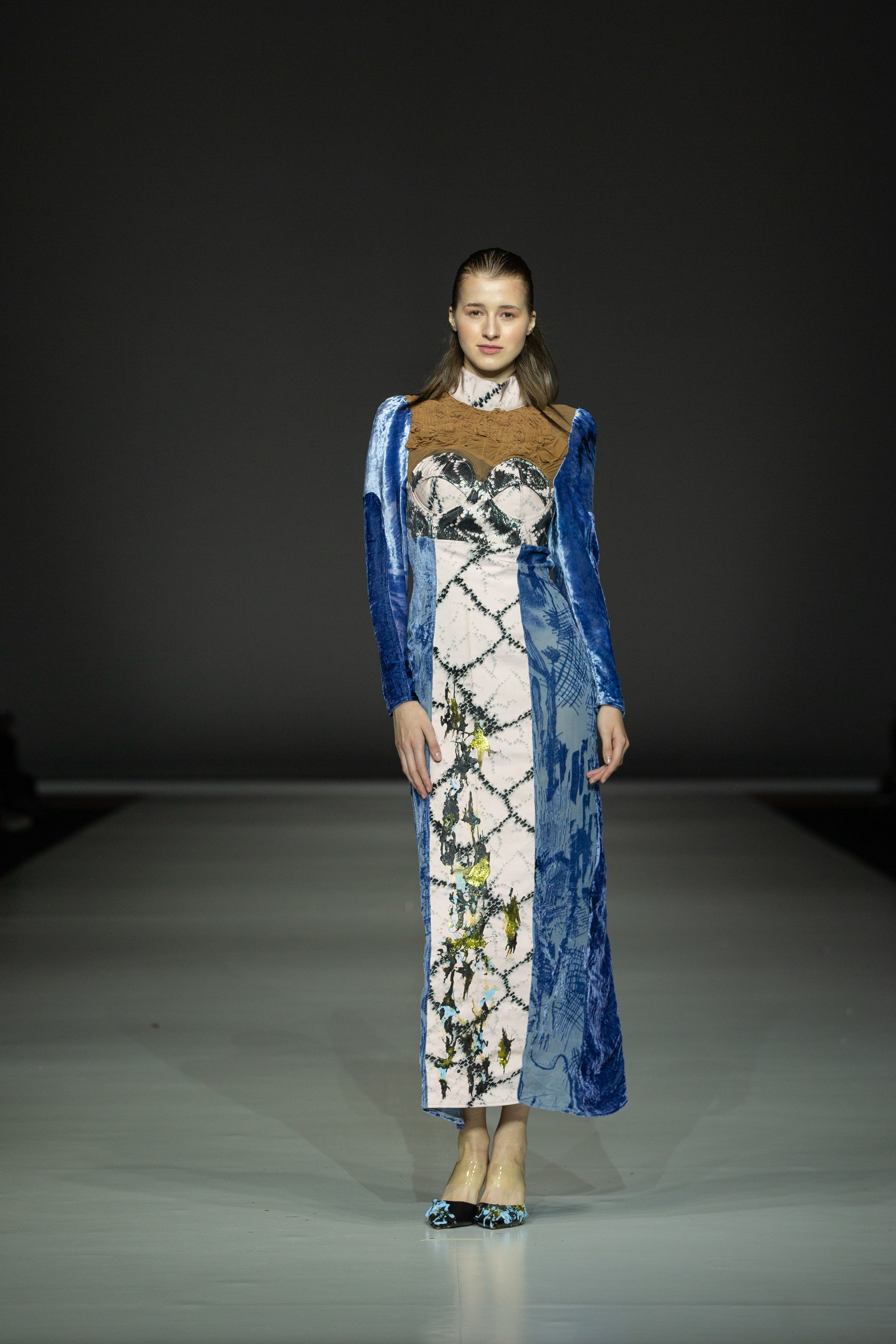Meet Lynsey Gibson, Redress Design Award 2018 finalist
Lynsey Gibson’s frustration at the fashion system is open and direct. “I developed an antagonistic relationship with the industry and its modes of production,” says the Central Saint Martins graduate. “In today’s climate, I truly believe there should only be the option of being a sustainable designer.”
For her submission to the Redress Design Award, Lynsey drew ideas from art and travel. “I lived in China for a year and I found cultural similarities and differences continually inspiring,” she says. “But I was also inspired by the wonderful women around me, and a generation of new Chinese artists.”
Her aim is to change perceptions of sustainable fashion. “I went to Japan and was in awe of how well they preserve secondhand clothing,” she says. “I want to elevate the idea of sustainable design by combining traditional handcraft techniques with knitwear innovation to turn waste into something desirable.”
The key lies in seamless knitwear. “I’m so excited by seamless technology!” she says. “It’s basically like printing out a fully formed, zero-waste garment. The more dialogue the designer has with the technician, the more ambitious the design can be. And it would be highly feasible to produce on a large scale.”
Lynsey turned leftover sample yarns, including nylon and sparkly metallics, into a sinuous, hand embellished collection. “The ultimate aim is that the handwork could be achieved by artisans paid a living wage…”
Lynsey returns to Central Saint Martins to study an MA in Material Futures. “My role as a designer is to continually question how to make something more beautiful, more useful, more sustainable, more holistic. If I can answer these questions in one garment, the need for more consumption will be redundant.”
Partnership is vital part to this new future. “I look forward to sharing knowledge with like-minded designers. I would like to help break down institutional borders and focus on cross-collaboration between academics, designers and NGO’s to create sustainable design from an anthropological perspective with positive political activism.”
This article originally appeared in the Redress Design Award 2018 Magazine.








